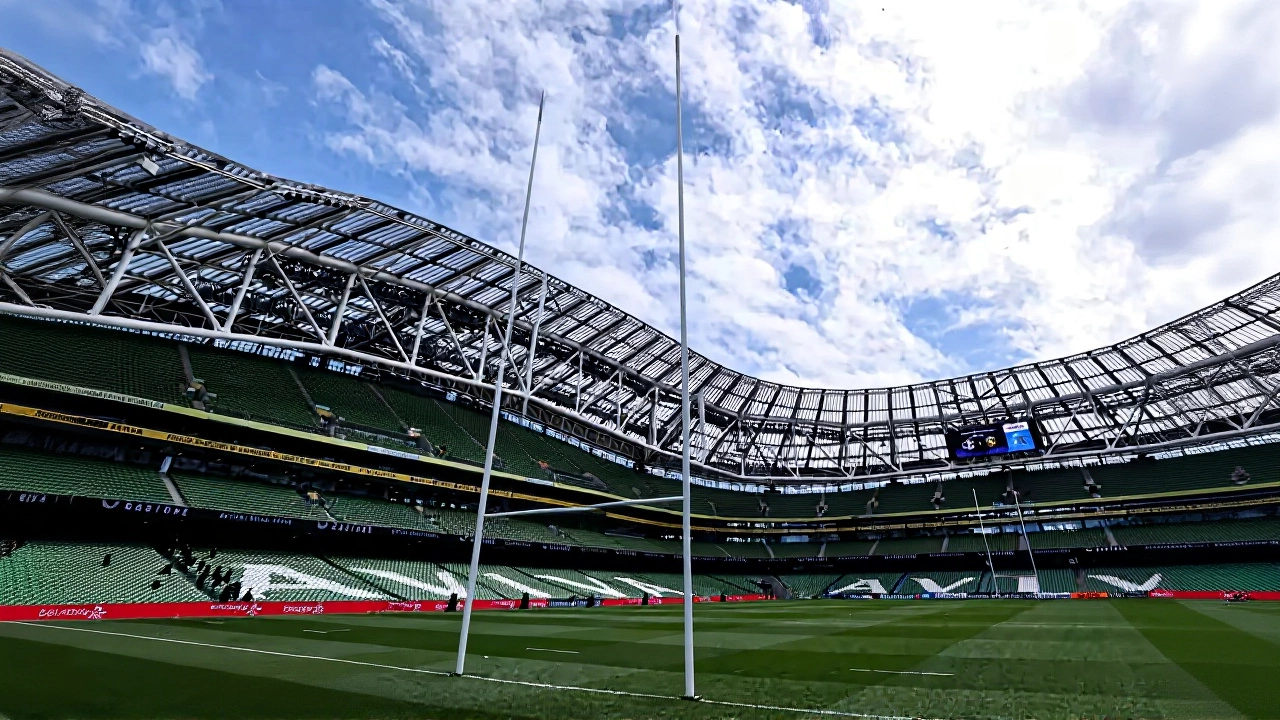
When the final whistle blew at the Aviva Stadium on Saturday, November 22, 2025, the roar wasn’t for victory — it was for heart. Ireland had given everything, playing with just 12 men for over 30 minutes, yet still fell 13-24 to the South Africa Springboks in their final Quilter Nations Series 2025Dublin clash. The scoreboard didn’t tell the whole story. What unfolded was a battle of wills, discipline, and raw physicality — one that left fans breathless and analysts questioning the future of Irish rugby under pressure.
The Battle of the Set Piece
From the first scrum, it was clear South Africa had come to dominate. Fineberg and Gazulu didn’t just win the tight five — they dismantled it. TryZone TV’s match analysis noted the Springboks’ scrum was "all South Africa," and by halftime, Ireland’s front row was visibly fatigued, with Andrew Porter and Tadhg Furlong struggling to hold their ground. The Springboks’ scrum penalty count? Five. Ireland’s? Zero — because they were too busy avoiding them.Discipline Costs Ireland the Game
The turning point wasn’t a try — it was a yellow card. At the 27-minute mark, Ryan Baird was sin-binned for a high tackle, reducing Ireland to 14. Then, just before halftime, Caelan Doris followed him to the bin for a dangerous clear-out. Suddenly, Ireland were down to 12. NBC Sports’ commentary at timestamp 91 captured the despair: "Ireland are done to replace him in a few minutes time." The Springboks didn’t hesitate. They attacked the gaps, exploited the space, and by the 38th minute, led 19-6. "Does it have to be another yellow card?" asked TryZone TV at timestamp 142 — and yes, it did. Ireland’s discipline wasn’t just poor; it was catastrophic.Gibson-Park’s Heroics and the Missing Fly-Half
But wait — what about Jamison Gibson-Park? The Ireland scrum-half, normally a spark plug, was thrust into the fly-half role after Sam Prendergast was pulled early with injury. At timestamp 28, NBC Sports marveled: "Gibson Park looks so comfortable when he stepped in at 10 last week and shows fly-half hands to release low a try-scoring at full stretch." He did everything — distributed, tackled, even kicked for territory. But even genius can’t compensate for a depleted pack and constant penalties. His two penalties in the 50th minute brought Ireland within 19-12 — their closest margin since the 10th minute. But the momentum? It had already slipped away.Moody’s Seal and the Final Blow
The game’s defining moment came in the 68th minute. Moody, South Africa’s dynamic center, broke through a tired Irish defensive line, sidestepped Bundee Aki, and dived over near the corner flag. The conversion made it 24-12. "Of a comeback that just seems insurmountable," said NBC Sports at timestamp 760. Ireland had 10 minutes. They had heart. But they didn’t have bodies. Their final attack, a desperate lineout drive in the 79th minute, ended in a turnover. The crowd, once deafening, fell silent. Then, as the final whistle blew, they roared again — not in defeat, but in respect.
A Historic Win on Irish Soil
This wasn’t just another win for South Africa. It was their first victory in Dublin since 2018. TryZone TV noted at timestamp 68: "Evanth the only man who knows how it feels to win a match in Dublin for South Africa." That’s not hyperbole. Since 2015, the Springboks had lost three straight in Dublin — including a heartbreaking 29-28 defeat in 2022. This win rewrites the script. It signals a shift: South Africa no longer fears the Irish crowd. They feed off it. And they’re learning how to win here.What This Means for Ireland
Ireland’s 2025 campaign ends with three wins, two losses — but the losses came against the world’s top two teams: New Zealand and now South Africa. The problem isn’t talent. It’s consistency under pressure. The red cards, the scrum collapses, the missed tackles — these aren’t random. They’re systemic. Coach Andy Farrell now faces a brutal winter: rebuild the set piece, fix the discipline, and find a long-term solution at fly-half. Prendergast showed flashes, but he’s not a starter. Gibson-Park can’t play 80 minutes at 10. The cupboard is full of talent, but the engine is sputtering.What’s Next?
South Africa heads into the 2026 Rugby Championship as favorites. Ireland? They’ll regroup for the Six Nations in February, but without their key forwards fully fit, and with mounting questions about leadership, they’ll enter as underdogs. The Springboks’ victory wasn’t just about skill — it was about mental toughness. And that’s the lesson Ireland must learn.Frequently Asked Questions
Why did Ireland play with 12 men for so long?
Ireland lost two players to yellow cards within 12 minutes of each other — Ryan Baird in the 27th minute and Caelan Doris just before halftime. With no specialist back-row replacements on the bench, Ireland had to shuffle positions, leaving gaps in defense. The team was already fatigued from a punishing scrum battle, and the disciplinary lapses compounded the issue, leaving them outnumbered for over 30 minutes.
How did South Africa dominate the scrum so effectively?
Springbok props Fineberg and Gazulu, backed by a highly coordinated front row and exceptional technique, exploited Ireland’s fatigue and inconsistent binding. South Africa’s scrum coach, Rassie Erasmus, had spent weeks targeting Ireland’s weak left side, where Tadhg Furlong was under pressure. The result? Five scrum penalties in Ireland’s favor, and zero for the Springboks — a rare feat against a top-tier team.
Is Jamison Gibson-Park now Ireland’s long-term fly-half option?
Not yet. While Gibson-Park showed remarkable adaptability, playing 70+ minutes at fly-half is unsustainable. His natural position is scrum-half, and his kicking game lacks the tactical range of a true 10. Sam Prendergast remains the preferred starter, but his injury vulnerability is a concern. Ireland need a third option — possibly Jack Crowley — before the Six Nations.
What’s the historical significance of South Africa winning in Dublin?
South Africa had lost their last three Tests in Dublin — including 2022’s 29-28 heartbreak. Their only previous win since 2015 was in 2018. This 2025 victory breaks a seven-year drought and signals a psychological shift: the Springboks no longer see Ireland as an intimidating home fortress. It’s a landmark win that could influence future World Cup pool draws and team confidence.
How did the Quilter Nations Series impact Ireland’s World Cup preparation?
The series was meant to be a warm-up for the 2027 World Cup, but the losses to New Zealand and South Africa exposed critical flaws: discipline, set-piece stability, and depth. Ireland’s players are world-class, but their bench lacks physicality. The series showed they can’t rely on talent alone — they need structure under pressure. Farrell now has winter to fix these issues before the Six Nations.
What did the crowd’s reaction say about Irish rugby culture?
NBC Sports called it "a quite incredible night in the Irish capital." Even in defeat, the crowd stood for 15 minutes after the final whistle — chanting, clapping, singing. That’s the soul of Irish rugby: pride over results. Fans recognized the effort, the courage, the fight. It’s a culture that values heart as much as victory — and that’s something no scoreboard can take away.

Write a comment